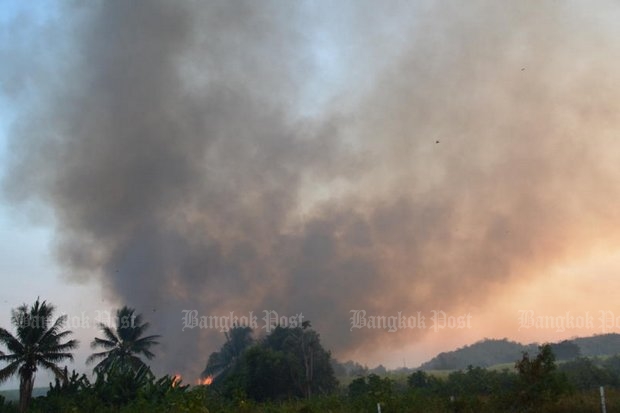
Last week, the government announced a policy to expand the sugar industry. The strategy, initially, sounds good, because it will catapult the Thai agriculture sector from a raw material supplier to a high value industry. FarmVille version 4.0, if you will.
In the upgraded version, the Office of the Cane and Sugar Board (OCSB) reportedly has approved licences for investors to develop 25 more sugar factories, adding to the existing 54 plants, over the next five years. That means the country's sugar cane industry aims to raise sugar plantations from 10 million to 16 million rai by 2026. Six million rai of plantations will involve crop-switching as the government encourages rice farmers to switch to more lucrative and higher value crops such as sugar cane.
The government is going to expand the industry to feed high-value industrial products such as bioplastics, and raise production of sugar byproducts such as molasses as feed for ethanol, and bagasse as feed for renewable energy.
Personally, I like this policy. Yet, I cannot help but worry it might worsen pollution caused by sugar harvesting.

Anchalee Kongrut writes about the environment in the Life section, Bangkok Post.
Don't get me wrong. The sugar industry in Thailand has been exemplary. It has its own laws and its own board of governance. There is a quota system imposing trade volumes for sugarcane factories, middlemen and farmers to follow. The industry also has a system that gives farmers negotiating power. Everything seems to be going well, except the worsening air pollution and environmental degradation caused by pre-harvest sugarcane burning, which precedes cutting. The burning often takes place from November to March.
Pre-harvest burning does not make national headlines. However, there have been small provincial reports about villagers involved in fire accidents.
Such a practice takes place in other sugar-harvesting nations. In the US state of Florida, the law still permits pre-harvest burning (which the Sierra Club, a conservation group, has tried to stop). Brazil and Australia have passed laws to ban sugarcane burning. Now Thailand needs to tackle the problem.
The OCSB has forced sugar refining factories to pay a premium for freshly-cut product. (Factories prefer freshly-cut cane stalks as the sucrose will not condense and disrupt machines.) But pre-harvest burning rages on. The demand to meet the quota and the race against time compromise standards.
The problem is more than fire accidents. It affects personal health and significantly degrades the environment. I visited Dan Chang district in Suphan Buri, one of the country's major sugarcane growing areas, early this year to write a story on sugarcane and the industry. I found the location was an open farm area under a murky sky. I saw a few air-conditioned houses in the middle of the farm, with windows tightly closed. Villagers told me that they experience dry cough. Smoke hung over the roofs of their houses and seeped into indoor areas. It's not unusual for farmers to see their sugarcane plots gutted by fires set by unknown people.
Previously, pre-harvest burning was not common in Thailand. In the past, harvesting was a craft. Known as "clean harvesting", skilled labourers ripped leaves from sugarcane and bundled and loaded them into trucks. The process was time-consuming and tiring. Labourers had to tolerate insects, sore palms and aching arms and hands.
But the practice has changed due to the growth of the industry. Thailand has become a major sugar exporter. Plantations have been expanded to meet higher demand. Yet skilled harvesters have diminished in number, either retiring or shifting to lighter work. Thus, workers from the Northeast are brought in for the sugarcane harvest.
The new breed of labourer is blamed for setting fires to lighten the work load. But landowners get less money selling burnt sugar cane, and their land is less fertile. The burning has led to air pollution and global warming emissions. Land plots that plant sugarcane are now a source of pollution.
While purchasing burnt sugarcane is not illegal, pre-harvest burning is a criminal offence that carries a minimum penalty of two years' jail and a 14,000-baht fine. Local police usually acknowledge the problem but cannot arrest wrongdoers, because the arson takes place at night. Setting fires on the farms is simple, requiring just a cigarette butt or a matchstick and gasoline.
The sugar industry upgrade might sound appealing. But if pre-harvest burning rages on, we might find the taste of sugar not so sweet after all.
